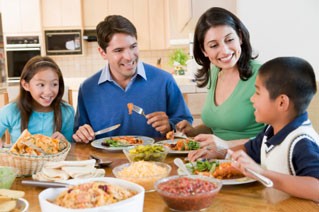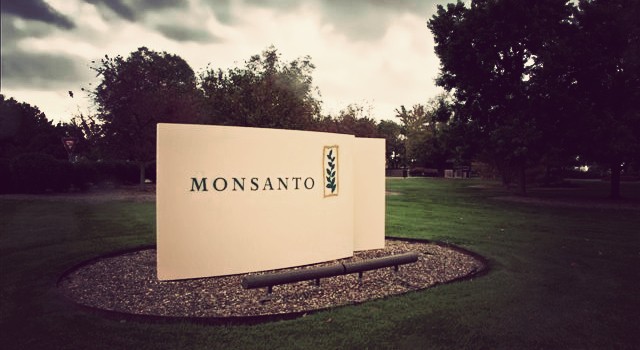
Home cooking beats all of the competition hands down when it comes to saving money. Whether you're considering dining out or bringing home prepared food, you're paying for someone else to do something you can do yourself — and, with a little practice, probably do better. At a restaurant, you're spending money on the cost of running somebody’s business, including rent and payroll. By the same token, purchasing prepared food from the grocer’s freezer involves paying for the processing, packaging, and advertising of that product — none of which adds value to the food itself. So, when you cook, you are saving money, and when you cook sustainably, you're taking those savings to the next level. You're using locally raised and produced food so you're not footing the bill for transporting ingredients across the country or around the globe.
It's true – magazines, television and other popular media increasingly urge families to return to the kitchen, stressing the importance of home-cooked meals and family dinners for both physical health and emotional strength.
It's almost like a sick joke to finally push for things that are so out of reach for the average family. Especially after decades of culture creation eroding family life away, and an economy deeper in the toilet than ever before. So what could researchers have to offer? But first…
Foodist “extraordinaire” Michael Pollan wowed audiences with this obvious gem – that the average family spends four minutes in the kitchen cleaning up after dinner. And oh, what could they possibly be eating with a four-minute cleanup, with nary enough time to wash pots and pans? I didn't get swept away by his Chomsky-esque observations. I first heard about him for his standing up for the Food …
We found that middle-class, working-class, and poor families faced some similar challenges. For example, mothers from all backgrounds reported difficulty in finding time to prepare meals that everyone in the family would be willing to eat.
In addition, middle-class mothers reported being torn between their desire to spend quality time with their children and the expectation that they needed to provide the children with a home-cooked meal. Middle-class mothers were concerned that they weren't able to give their kids the best possible meals because they couldn't afford to buy all organic foods.
Poor families, meanwhile, faced more severe restrictions. Their financial limitations made it more difficult for them to afford fresh produce, find transportation to grocery stories, or have access to the kitchen tools needed to prepare meals – such as sharp knives, stoves, or pots and pans. (I guess that answers Michael Pollan's ponderings)
Bowen said:
Poor mothers also skipped meals and stood in long lines at non-profit food pantries to provide food for their children.
This idea of a home-cooked meal is appealing, but it's unrealistic for a lot of families. We as a society need to develop creative solutions to support families and help share the work of providing kids with healthy meals. [emphasis added]
What pray tell, would they be?
Elliott said:
There are a lot of ways we could do this, from community kitchens where families work together to arranging to-go meals from schools. There is no one answer. But we hope this work inspires people to start thinking outside the family kitchen about broader things we as a society can do when it comes to food and health. [emphasis added]
It appears that the family has ultimately played the smallest role in this research….
There are enough problems facing quality in the food system as it is. And yes, there are people who do and have in the past, gotten together to help with food prep – as a choice. But the crux of the food problem is the economy. Without good jobs for a long time (thanks “free trade,” thanks Wall St.), access to healthy foods and the time to prepare them is shredded, making it that much harder to withstand the face of food monopolies. Latchkey graduates know the cycle well.
Learning to cook sustainability is an opportunity to vote with your frying pan while you lobby with your fork; make it your own special way of furthering values you believe in — stewardship, responsibility, independence, love — by taking control of what goes onto your plate, and taking away some of the bloated power of industrialized agribusiness.
Please Read this Article at NaturalBlaze.com





Leave a Reply